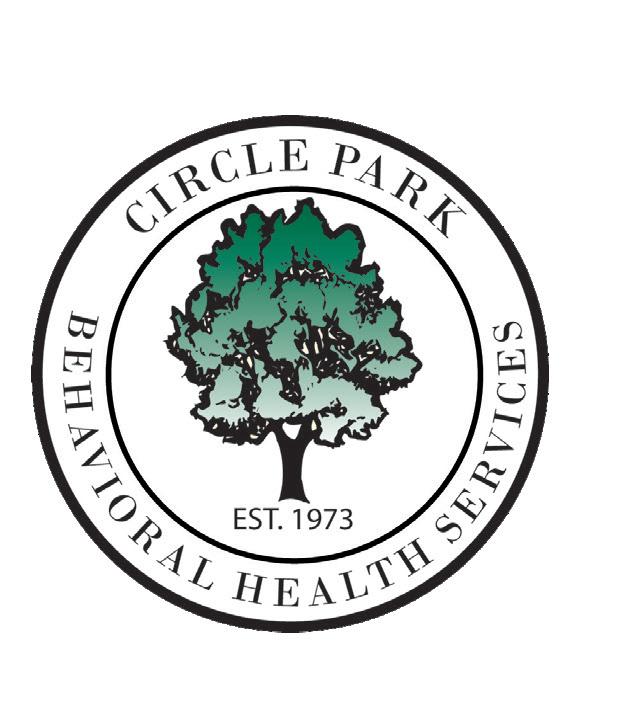
4 minute read
Circle Park: Mental Health & The Pandemic
from October 2021
by VIP Magazine
Mental Health and The Pandemic
story by Megan Adkins
Advertisement
The COVID-19 resurgence has arrived with a vengeance. The current predominant strain of the virus known as the Delta variant is causing case numbers to surpass those from the height of the pandemic in 2020; the numbers from this year’s Labor Day weekend alone were four times higher than at any point last year. Mask mandates and social distancing measures have returned, along with mounting hospitalizations and escalating uncertainties concerning the upcoming months. This resurgence is a jarring shock to the world after experiencing the encouraging downward trend in infections this past spring and summer. The rejuvenation of the warmer months has vanished and been, understandably, replaced with anxiety and apprehension. The COVID-19 pandemic continues to take a considerable toll on the population, inducing heightened stress levels and instability, leading to an exacerbation of mental health issues and substance use disorders. The coronavirus has irrevocably disrupted daily life as people learn to navigate inconceivable difficulties. In 2020 individuals were forced to deal with overwhelming and stressful conditions, ranging from unprecedented loss of employment, isolation from loved ones, and increased mental health issues. According to a CDC survey, 40% of adult respondents reported at least one negative mental or behavioral health condition in 2020, with 10% reporting suicidal ideation. Mental health conditions such as anxiety and depressive disorders have been on the rise since the onset of the pandemic, particularly affecting individuals aged 18 to 24. A 2021 study of 240 U.S. adults found that social anxiety symptoms significantly increased during the COVID-19 shutdowns, with many still coping with isolation’s lingering effects on their comfort level in social situations. Researchers predict that the pandemic will have lasting negative impacts on mental health, given the traumatic nature of public health crises. According to the American Psychology Association, social isolation is linked to increased rates of depression, anxiety, and poor sleep quality. Loneliness was a mounting concern among psychologists even before the pandemic and has now been further magnified by the current crisis. The pandemic has also had detrimental effects on those struggling with substance use disorders. Overdoses doubled in Florence County during the pandemic, with national numbers surpassing 94,000 according to the CDC. This is the highest number ever recorded for a 12-month period. Synthetic opioids, particularly fentanyl, have been the primary driver behind the increase in overdoses. Alcohol consumption also exploded in 2020, with a study from the National Library of Medicine reporting 60.1% of participants affirming an increase in drinking since the onset of the pandemic. Unfortunately, an increase in substance use was also found among the adolescent population. According to a Journal of Adolescent Health study, frequency of alcohol and cannabis use increased, with 31.6% using substances with peers via technology. Adolescents were unable to celebrate significant life events, such as graduation and prom, and experienced increased boredom, loss of loved ones, and heightened academic stress from virtual instruction. Another study also showed that parents adapted a more lenient attitude towards underage drinking, with one in six participants allowing their adolescent to drink with family during the lockdowns compared to zero in six before the pandemic. With upward trends in overdoses and substance use disorders, it is crucial that drug and alcohol education be presented to communities and that residents are made aware of treatment and intervention services available in their area.



Given these distressing trends and circumstances, Circle Park Behavioral Health Services remains committed to the residents of Florence County to provide prevention, intervention, and treatment services to those coping with substance use and mental health disorders. Seeking help for these issues can feel like a daunting task, but it is imperative that people recognize that they are not alone in these struggles. Circle Park offers a wide array of resources, including medication-assisted treatment utilizing Suboxone, Subutex, and Vivitrol for those struggling with opioid and alcohol use. We also provide peer-support services, where we capitalize on the support of our own staff who are in long-term recovery and help patients navigate the treatment and recovery process. Our treatment providers implement Trauma-Informed Care, with emphasis on stabilization and a holistic treatment approach. For more information regarding these services, contact Circle Park at 843-665-9349 or visit us on our website www.circlepark.com. We are also pleased to offer a 16-bed residential treatment facility for women diagnosed with a severe substance use disorder located at 1430 S Cashua Dr in Florence County. Designed to provide a nurturing and therapeutic environment, the center offers a unique opportunity for children, up to the age of 10, to continue living on-site with their mothers for 90-120 days. The center offers a wide array of treatment services, including group sessions, medication-assisted treatment, and general medical care. For more information regarding the facility, contact The Chrysalis Center at 843-673-0660 or visit www.chrysaliscenter.com.
Megan Adkins
Prevention Specialist Circle Park Behavioral Health Services www.circlepark.com












